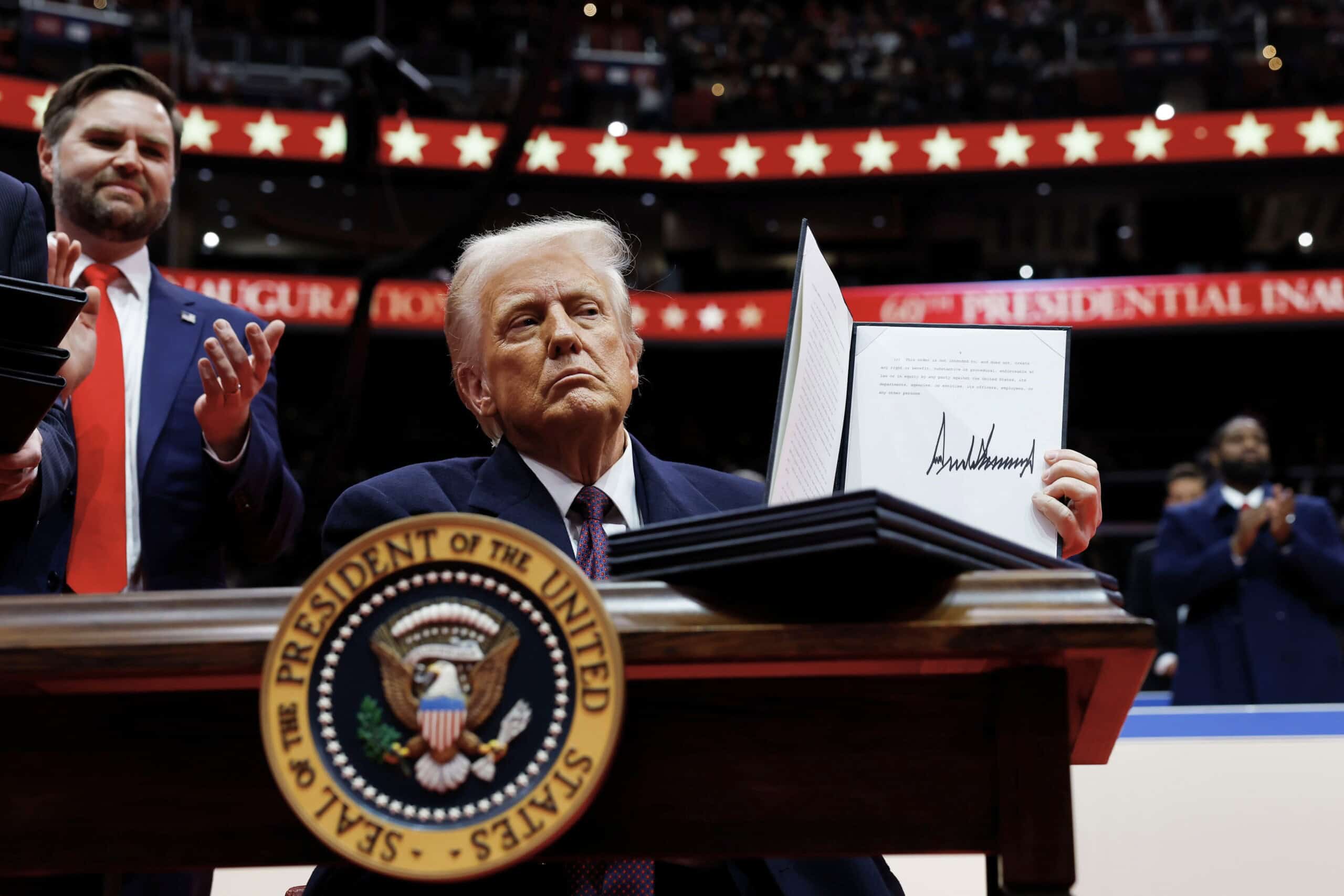Tim Clissold’s book Mr. China has been a must-read for anyone interested in living or working in China since it was published in 2004. In it he tells the often hair-raising — sometimes dangerous — story of doing business in the fast-growing country during the 1990s, as it opened up to foreign investment. Clissold has gone on to write three more books on China and to work in dispute resolution, as well as being a member of several corporate boards. He is also now involved in efforts to promote the study of China and Chinese in British schools and universities. We began the following interview by discussing that initiative: the following is an edited transcript of our conversation.

Illustration by Lauren Crow
Q: A large part of your involvement with China these days lies in encouraging more people to study and learn about China, something that’s become an issue in the UK just as in America. Yet we are living through a period when China itself seems to be more focused on self-reliance. Why is it still important to study China and the Chinese language?
A: I don’t agree with the premise of the question. I don’t think China wants to be insulated from the world. If you look at the pronouncements of Xi Jinping, about things like the Global Development Initiative, or the Belt and Road Initiative, the ‘commonwealth of human destiny’, you might think it’s propaganda; but they have actually been putting a lot of money to work in other countries and it’s not in their self-interest to cut themselves off from the rest of the world. They are profoundly pragmatic people.
| BIO AT A GLANCE | |
|---|---|
| AGE | 937 (actually 64) |
| BIRTHPLACE | Sheffield, Yorkshire, England |
| CURRENT POSITION | Visiting Fellow, Jesus College, Cambridge |
But I do think China has reached the conclusion that it has no option than to be more self-reliant. You have to stand back and ask, why has this happened?
Most of us no longer seriously question that the world’s future, and the fate of our values, will be settled in the struggle between a rising China and a hegemonic America. All else is detail. And it’s quite natural that the incumbent is going to feel threatened by a rising power.
The thing that’s different about this conflict is that it’s between fundamentally different civilisations, which have tremendously different self-perceptions. Take the United States: their 2017 National Security Strategy states that ‘free men and women have created the most just and prosperous nation in history, and that their founding principles have made the United States of America among the greatest forces for good in the world.’ That’s their self-perception; we don’t need to argue about whether that’s right or wrong. The point is they’ve got this feeling of uniqueness and that their set of values is universal.

China’s the exact opposite. China knows that its system won’t work anywhere else. As the great sinologist Lucian Pye said; ‘the most pervasive underlying Chinese emotion is a profound, unquestioned, generally unshakable identification with historical greatness. Merely to be Chinese is to be part of the greatest phenomena in history.’ They’re focused on their own civilization. The Americans are much more outward looking, more evangelical, they think that their system can go everywhere else. China’s not like that at all; you’ve got very different worldviews.
So then you say, how can you bridge that gap? How can you get them to understand each other? And the short answer is, you can’t. This is a struggle about wealth and power, and it’s as old as time.
But there are many peripheral issues where both societies have the same objectives. The core thing is trust. Addressing the broad imbalance in power and wealth, and who’s going to get what; you can’t do that just through negotiations. You can’t rebuild trust that way. But if you’re working together on global health issues like antimicrobial resistance, or climate change mitigation, or cracking down on fentanyl, where you’ve got the same objectives, that would be great, because that would be trust building.

But you can only do that if you’ve got a better mutual understanding. And we’re just so far behind in our understanding of China that it’s very difficult for us to do that in a constructive way. Over the long term, in order to protect our own values and to cooperate to our greatest advantage, we really need to up our game on China.
Because while the fundamental competition is not going to go away, there are areas of potential cooperation, and you need a critical mass of people who are educated about China to progress that cooperation?
That’s right, but I go further and say, this is ultimately nothing to do about China, Xi Jinping, or the CCP. It’s about us. It’s about protecting our own future. Whether we have to compete or cooperate with China, we need to know more about it, to protect ourselves. China’s already sorted that out, because they went through a century of absolute agony; and then in the late 1970s, they thought, we really do have to understand these Westerners, because they realized how far behind they were. We should do our utmost to avoid the terrible process China had to go through.


Deng Xiaoping inspects the Apollo 17 (left) and a lunar rover (right) during a tour of NASA’s Johnson Space Center, February 2, 1979. Credit: NASA
When do you think interest in China started to decline?
During the late period of the Obama administration — because by then it was clear China hadn’t remade itself in our image. And everyone said, I thought when they joined the WTO we were going to get all their markets, and all the banks would pile in and just carve it all up. But that’s not actually what the deal said. There was a slow realization that actually, this is not quite as straightforward, we really have got a problem here.
The language from the people who are very hawkish on China is equivalent to the 1930s and 40s, with gratuitous use of the word ‘collaborator.’ People are extremely negative and it’s very toxic.
There was an assumption, too, that communism ultimately fails — because of what had happened in the USSR and Eastern Europe. So then the feeling was, these guys in China are being successful and yet they’re communists, they must be cheating: That’s the only possible explanation.
There’s another exacerbating structural factor inside both of these two societies. The interaction between America and China has created trillions of dollars of value for both sides. But in America, it’s stayed in the hands of the people who had capital in the first place. China has similar problems, but it’s nothing like as acute. I’ve seen the poverty alleviation efforts in country villages and they are working.
And you think that this all manifests itself in the declining interest in studying China?

Yes, because it’s become so toxic, the idea that they don’t compete fairly. Also Mandarin is perceived as being incredibly difficult — it’s tonal, they’ve got all these impossible characters, you can’t possibly pronounce any of the names and so on.
It’s also much more difficult to get a job in China than it was when I started thirty years ago in white-collar professions — in areas like basic accounting, it wasn’t really there in China back then. And they’re definitely not going to have the bankers’ bonus culture.
What needs to be done to re-engage young people, and who is responsible?
Here in the UK, the last government identified China as an ‘epoch-defining challenge that is present in every aspect of government policy and civic life.’ That’s true. And yet last year in the UK, there were only 321 graduates in any degree that included either the word China or Chinese in the title — so including degrees where Chinese is as little as 20 percent of the course. So we’ve got basically only 300 people studying Chinese at university level every year, for an ‘epoch defining challenge’. The number doing Veterinary Sciences is 36 times higher: I know we’re a nation of dog lovers, but I still think national security should get a look in!

You have to start from what’s realistic. Taking the number to 3,000 from 300 over 10 years might be doable. So how do you do that? If you look at the numbers, the drop-off in studying languages comes after the age of 16, because people regard languages as difficult and other things such as the STEM subjects as more useful. But at the moment, the only track in the UK for somebody wanting to learn about China at university is to study Mandarin.

Now Mandarin is great, I encourage anybody to study it at A level [the equivalent of high school in the U.S.] but in order to increase these numbers we need another equivalent qualification in Chinese Civilization, taught in English. I’ve spent 15 years trying to promote this, with a syllabus written by 12 of the leading scholars in the country. I’ve got support from universities and business leaders. Officials at the UK’s Department of Education say to me “we know we have to do this,” but they couldn’t persuade ministers in the last government. The politicians absolutely would not look at it because it’s too toxic.
And that stems from politicians not wanting to be seen spending money on something China related?
Yes. The language from the people who are very hawkish on China is equivalent to the 1930s and 40s, with gratuitous use of the word ‘collaborator.’ People are extremely negative and it’s very toxic. It’s much more difficult to make the case that we should be cooperating with China than not.
What enticed you to live in China back in the day?
I arrived in Hong Kong in 1987. The global accounting firm I was working for, Arthur Andersen, provided an opportunity to basically travel around the world. And I just thought, I want a bit of adventure.

So I pitched up in Hong Kong, not really knowing where I was, knowing nothing about China. The immediate thing was the Chinese characters: I always want to know what a character means, because that medium of communication is so different, so fundamental to the Chinese connection with their own history and their sense of historical greatness.
At that time I took a few trips into mainland China, and I just got hooked. There was no grand strategy at all.
In Mr. China you write about your first forays into doing business there, and your various attempts at joint ventures. What made you want to write about that?
In a nutshell, I met and teamed up with a guy who was a Wall Street banker, 12 years older than me, much more experienced, and immensely charismatic. And at the time, there was a big wave of capital coming from the States to China, and he raised $420 million in about six months. That was a lot of money in those days.
Tim Clissold discusses Mr. China during a China Institute event, March 4, 2005. Credit: C-SPAN
We dumped that money into 18 joint ventures: But two years later, it was totally out of control, people back in New York were yelling at us. I was the only Westerner that could get under the skin of the situation, with my language capability. It was up to me to try to sort it out. That was extremely arduous: I was even held hostage at one point.
At the end of it, I was absolutely exhausted. I thought some of this stuff might be quite interesting for other people but the initial motivation was to try and make sense out of it for myself because it was just such a bizarre thing to have happened.
Is it fair to say that at the time you thought that you were there as part of a vanguard of people bringing market economics, and maybe a measure of democracy, to China?
Exactly right. We thought, we’ll sort these guys out. Mea culpa, I did go there saying we’ll introduce all these reforms, and it will be great, and they’ll get more Western and everyone will be happier. And then we got the lesson of a lifetime.
And is the lesson China will always be China, we shouldn’t even try to change it. Or is it the lesson that it’s just going to take time?
| MISCELLANEA | |
|---|---|
| FAVORITE BOOK | Bleak House by Charles Dickens |
| FAVORITE FILM | The Hours |
| FAVORITE MUSICIAN | Johann Sebastian Bach |
| MOST ADMIRED | Mahatma Gandhi, Nelson Mandela and Deng Xiaoping because they were each able to forgive the wrongs done to them by others. |
I go back to this sense of historical greatness. I really do think that they’re not going to abandon that.
Probably the most important question of the last half of last century is why, during its reform period, did Russia cave in to the laissez-faire economic orthodoxy and take the mad dash for capitalism that has ruined Russia for generations — because all the money ended up in the hands of the oligarchs. China was under exactly the same kind of pressure, from the IMF and everybody else, to get rid of pricing controls. And they didn’t.
Why did the Chinese stand firm and the Russians caved? I think that’s because they’ve got more than 1,000 years’ experience of pragmatic management of the balance between the state and the market. This is what they know how to do. They’re not going to suddenly take a foreign system, and plonk it into China — any more than we could possibly take the system from China and plonk it into ours.
A lot of the Western firms that plowed into China during the period you wrote about in Mr. China are now pulling back, like the banks, or being eclipsed, like the auto companies. What do you take from that?
You have to analyze the reasons that they are scaling back — and not all of them are scaling back, of course. The risk of being sanctioned by the U.S. for interacting with China is a big factor for Western companies. There’s no geopolitical predictability.
If you look at some of the academic studies about why China has been so successful in the energy transition industries, they point to the fact that there were some important subsidies early on, and the country’s enormous manufacturing base. There was a clustering effect that enabled knowledge transfer. But by far the most important factor was the decades-long stability of national policy. People knew from 2008 on that this was the way we’re all going.
The equivalent in America is the Inflation Reduction Act. But who can invest on the basis of that? [Republican nominee] Donald Trump’s already said he’ll abolish it, and he may get in. So that’s an enormous political risk. The real geopolitical risk is outside of China, not inside.
…if I was in government, I’d try and feed in all the knowledge that’s out there. So then if your objective is to punish China, say over an issue like Hong Kong, you can find something that hurts, and you’re not just blustering around.
Still, if you’re a company whose products and services dovetail with Chinese national policy, you can get caught up in the tailwind, and do incredibly well. It’s always been like that. But they don’t want things like designer handbags anymore — they can make their own. They’ve got so much better at doing things now.
Would you advise a young Tim Clissold to head out to China these days?
No, I wouldn’t, because it’s too difficult now. but you’ve still got a $19 trillion economy growing at 4-5 percent a year. That’s never happened in human history. China’s going to be an engine of growth, but they have problems, with excess capacity and so on.
A look at the wind turbine production line at SANY Renewable Energy, a division of Chinese manufacturing company SANY. Credit: SANY
So what are the other global trends? Arguably the most important is the energy transition. It is an industrial revolution taking place, and China is ahead of us because of their institutional capacity. So you’ve got that transition, and you’ve got China’s continuing rise: But it’s not just happening in China, it’s in Asia with China at the core. So what I advise people to do is look at the energy transition in a country that is a sort of ‘proxy’ for China, like Vietnam.
You’ve had all these years of engagement with China, the ups and downs of doing business there, and you’re still committed to promoting engagement with the country and learning more about China. A skeptic might say, the problem is people like you: There’s been too much effort to understand China, with the result that the U.S. and others have been too soft on Beijing. What’s your response?
I don’t have the answer on Xi Jinping, or where China is going. But to take that premise: so you want to punish China, but you could end up lashing out in a way that would hurt ourselves and have no effect in China. If you don’t know anything about China, you could easily have no effect at all.

So whatever attitude or policy you have, you are better off with more knowledge of China. Of course, there are lots of panda huggers and so on: but the other extreme doesn’t really understand, or have any empathy for normal, ordinary Chinese people. Any kind of consensus in any society like ours, comes through lots of different views contesting. And that’s right. But if I was in government, I’d try and feed in all the knowledge that’s out there. So then if your objective is to punish China, say over an issue like Hong Kong, you can find something that hurts, and you’re not just blustering around.

Andrew Peaple is a UK-based editor at The Wire. Previously, Andrew was a reporter and editor at The Wall Street Journal, including stints in Beijing from 2007 to 2010 and in Hong Kong from 2015 to 2019. Among other roles, Andrew was Asia editor for the Heard on the Street column, and the Asia markets editor. @andypeaps



